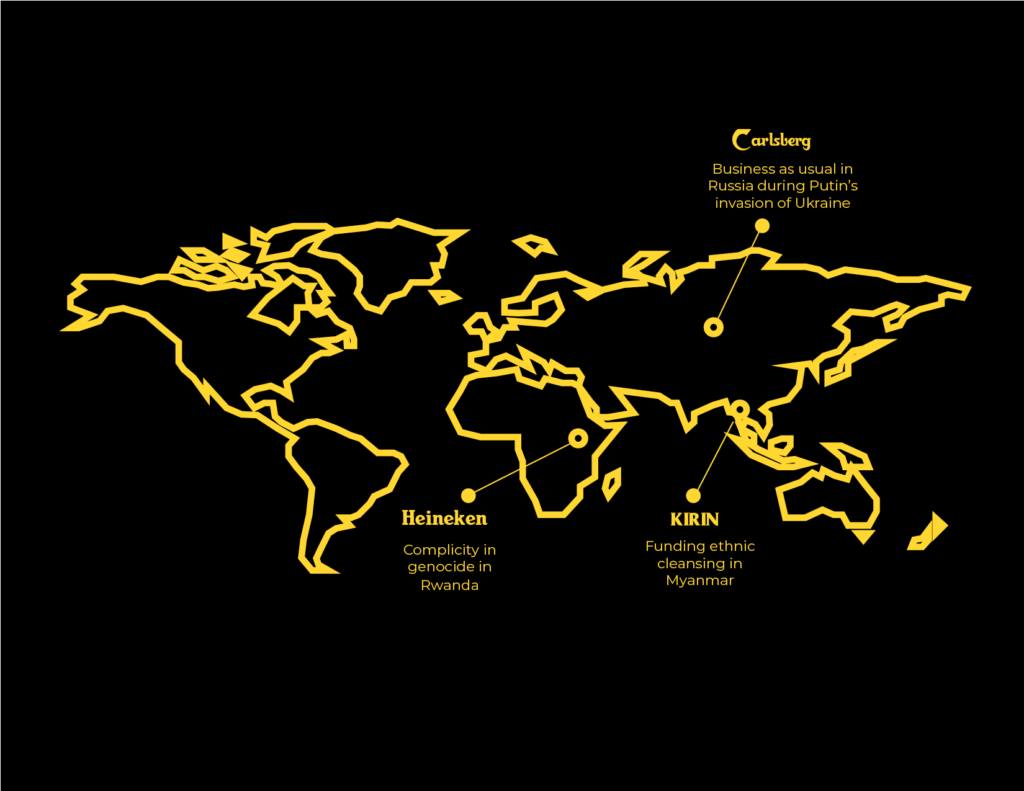Many multinational corporations have left Russia over Putin’s invasion of Ukraine. According to New York Post reporting, more than 400 companies have already exited Russia. These companies were of various industries including entertainment, oil, junk food, fashion, furniture, automobile, and more. But alcohol companies were about a month late to take any substantial action.
Big Alcohol played the waiting game with a focus on protecting brand image instead of focusing on an ethical stance. By the end of March, whitewashing attempts were not sufficient anymore and beer giants Carlsberg and Heineken finally decided to exit Russia. However, both companies have left some questions open considering their transition period out of Russia. Both companies are going to continue the Russian business at “reduced operations” level until the transition is over.
- When will the companies fully exit Russia?
- How long will this transition period last?
- Why are alcohol multinationals much slower in exiting compared to other multinational corporations with massive operations in Russia?
- What happens to the profits earned during this time?
- What about the taxes the companies pay to Russia which indirectly fund Putin’s assault on Ukraine?
Meanwhile, the stance of other Big Alcohol companies including AB InBev, Diageo, Pernod Ricard, and Brown Forman remains even more unclear.
This is not the first time that Big Alcohol has put profits over human rights. Big Alcohol companies Kirin and Heineken have both supported authoritarian regimes for profit maximization ignoring grave human rights violations by the respective regimes.

Beer giant Kirin was involved with Myanmar’s military. The company had two joint ventures in the country with Myanmar Economic Holdings Limited (MEHL). MEHL is a military-owned conglomerate and serves as a welfare fund for the military junta in Myanmar. Kirin only announced terminating the two ventures in 2021. MEHL and Myanmar military units were charged with egregious human rights abuses and genocidal intent against Rohingya civilians.
Heineken has previously continued business as usual in authoritarian regimes as was exposed in the book “Heineken in Africa” by investigative journalist Olivier van Beemen. The company has used the “loyalty to employees” strategy to avoid exiting a territory where its presence could contribute, indirectly, to war crimes or other human rights violations, for example in Burundi or in the Democratic Republic of Congo. The company is using the same strategy in Russia.
Standing in solidarity with the people of Ukraine is absolutely essential to give voice and mobilize support for the protection of their human rights. This includes donations to humanitarian efforts, health support, food, and more. Movendi International issued a statement and developed a resource page with a toolkit for people to take action in support of the people of Ukraine
